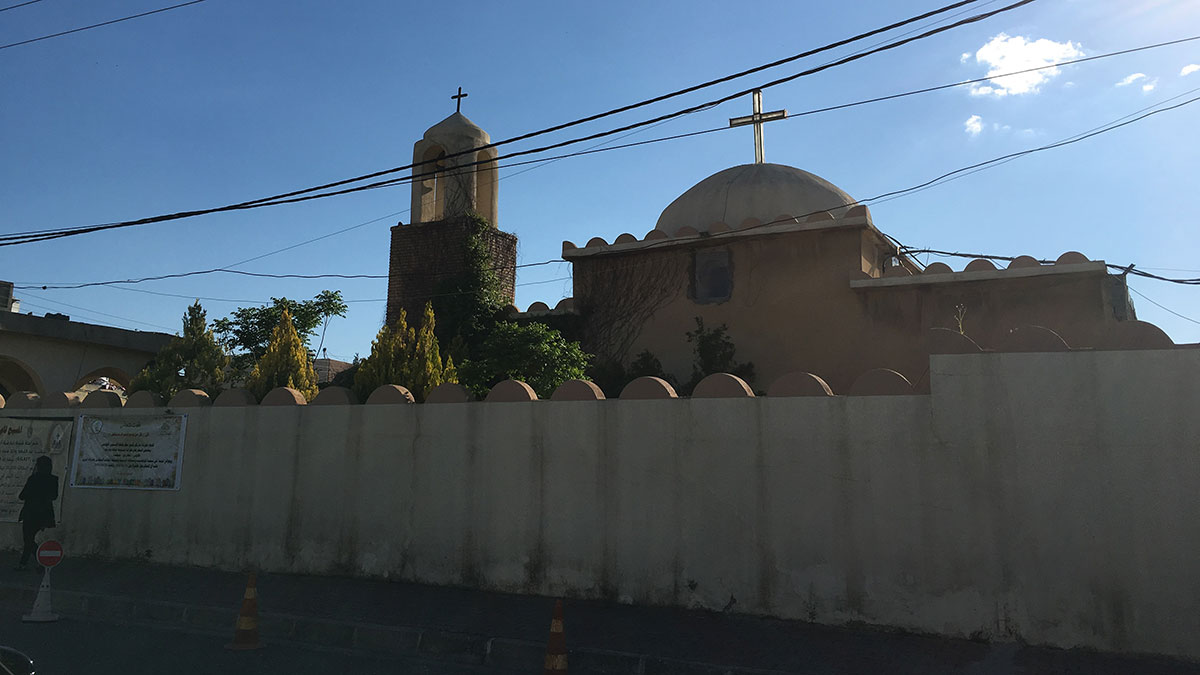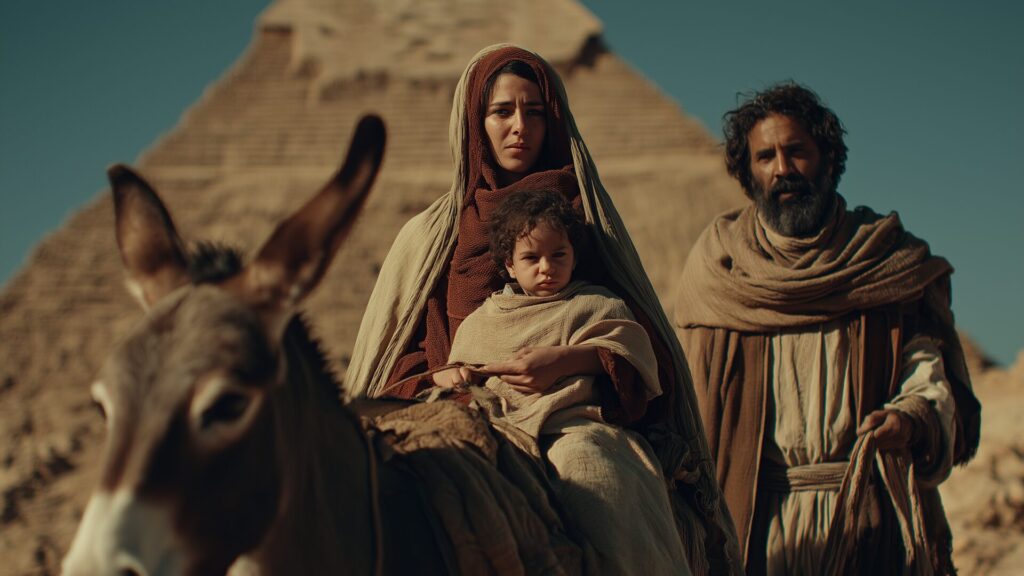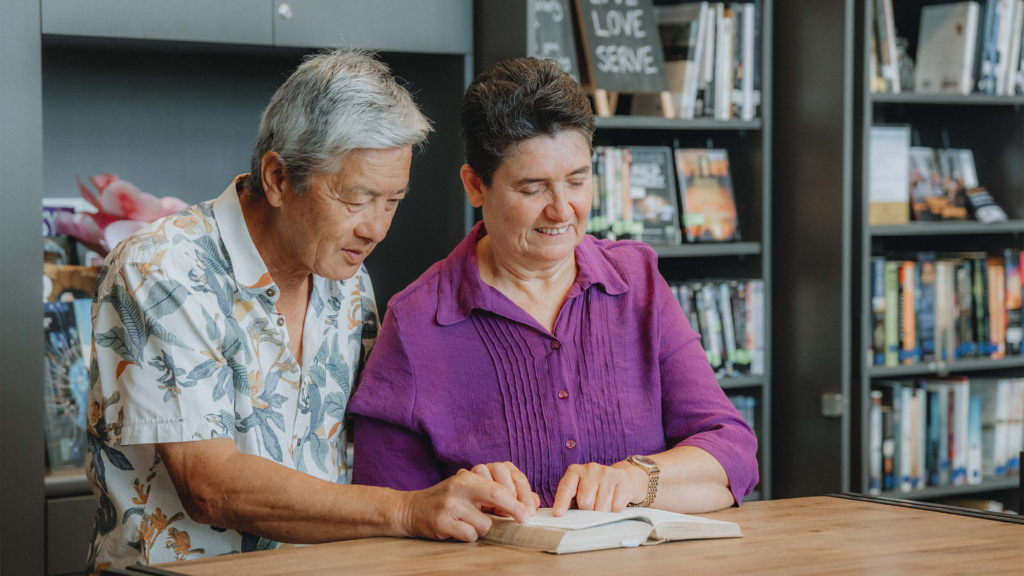The FlyDubai flight to Erbil slowly descended. Below, thick, tousled spring crops patterned the farmed landscape. Overflowing rivers and streams filled by recent abundant rains stretched tentacles across an ancient plateau over which the conquering armies of every empire for the past 2500 years had travelled. After a long journey, I too was approaching the capital of the Kurdish Region of Iraq, land of the Medes of the Bible, whose civilisation is profiled in my first two historical novels.
In the airport arrivals lounge I was greeted by my smiling Kurdish Christian guide and fixer, who learned about Jesus when he was serving as an interpreter in the US army. I was thankful for his Special Forces experience when three military helicopters flew overhead just after we left the airport. “It’s OK,” he replied calmly to my concern, “they are US forces; they do it regularly.”
Biblically, Kurds are the descendants of Noah’s son Japheth, across a region that includes parts of modern-day Iraq, Iran, Syria and Turkey. They are now the world’s largest ethnic group without a state.1 Erbil boasts a 5000-year-old castle on a huge mound, including an ancient village and a disused mosque that was formerly a synagogue, now under restoration.

Kurdistan’s religious freedom, protecting Jews, Christians and other minorities, has not prevented persecution by religious and nationalist extremists, as evidenced by the gas shell in the castle museum that was dropped on the Kurdish town of Halabja as part of Saddam Hussein’s genocide campaign in the 1980s and ‘90s.
Erbil has many churches and is the headquarters of the Assyrian Church of the East, which survives in all four parts of Kurdistan. We attended a very solemn Assyrian Easter Friday service in Kurdish, which offered everyone a small cup of “sour water” after the service. Later, I had the privilege of attending a lavish Assyrian wedding, with the Adventist groom leading the exuberant traditional dancing.
But the highlight of that Easter weekend was Sabbath school and church at the small but relatively new Erbil Adventist Church in Ankawa, the Christian quarter of Erbil.
Inside the church, tiles on the floor and walls created a shiny, mirror-like, almost palatial effect. With only nine registered members, it runs a Pathfinder club for refugees and a church plant in a nearby town. Singing familiar hymns and songs in English while others sang in Arabic or Kurdish was a thrill. Afterwards, we were treated to a generous vegetarian Kurdish potluck lunch, not unlike the fare I encountered during most of my stay, featuring rice, beans, chickpeas, olives, nuts, green-laden salad vegetables and local, rich ice-cream for dessert.

Like most of my hosts, Kurdistan put on her best clothes for my visit. Travelling the scenic back route south-east towards the relatively “new” 200-year-old city of Sulaymaniyah (Slemani in Kurdish), verdant mountain ranges, some still snow-capped, arrayed before us. The most memorable was Piramagrun Mountain, the “mountain of the Magi”.
According to the female leader of the Zoroastrians in Kurdistan, their Magi priests greeted the Baby Jesus who would bring good and light.2 I wondered if, having studied the stars3 and believing in the coming of the Messiah, the ancient Zoroastrians had observed a particular star from the mountain and calculated its return date. I wondered if the prophet Daniel had informed Darius the Mede of the angel Gabriel’s Messianic prophecy, after which Darius passed the prophecy on to his priestly advisors.
It’s possibilities like these that made me think about the deep spiritual heritage of Kurdistan and its people. Kurds claim Abraham as one of their own, since they consider Harran, now Sanliurfa in Turkey, as Kurdish. This supports the notion that Abraham left what is now the Kurdish city of Nusaybin in the “region of Ur of the Chaldeans”4, and travelled west along today’s Syria-Turkey border to Harran. [pullquote]
Known in the centuries after Christ as Nisbis, Nusaybin hosted the missionary college of the original apostolic Assyrian Church of the East, which moved to Baghdad around 600 BC, served the Islamic caliphate with its learning and expertise—including medicine—and sent missionaries east with the gospel as far as the Philippines, China and Japan.5
Some Kurds also believe Jesus visited Kurdistan, and I certainly felt the presence of His Spirit there through His people. Such was the kindness and generosity in that Muslim-majority country, I usually forgot I was different. Privileged to be accepted and treated as one of the people, I joined in events such as the Yezidi yearly festival at Lalish. Yezidis claim to practise the oldest religion in the world and believe in Jesus. Recent severe persecution has seen Australia accept thousands as refugees.
A harmonious celebration of simple religious rituals accompanied by happiness, joy, dancing, music, colourful traditional costumes and relaxation with family, friends and guests, the festival day was one of my most memorable. The Yezidis’ ancient stone temple with its wide conical spires, whose proportions a cultural expert assured me have astronomical derivations, was nestled among lush, tree-dotted mountains not far from the city of Dohuk.

Kurdistan is an exhilarating mixture of a modern, but mostly developing, region. In the major cities, huge, cavernous malls stocked with designer clothes and other luxury goods are not far from streets where traders hawk manufactured products and food imported from Iran or Turkey to eke out a living in an oil-rich but cash economy. Some have fought terrorists to defend Kurdistan and the region, but cannot return home across state borders because of their ethnicity.
Due to inherited Median tradition, women have more equality in Kurdistan than other places in the Middle East, but today those not married by a certain age require extra education to learn how to support themselves, while others face culturally embedded human rights abuses and domestic violence in a patriarchal society.
Throughout my stay, apart from the people on the streets, in hotels, restaurants, taxis and bazaars, I met politicians and women’s group leaders, religious leaders and army officers, some of whom requested help either from the Australian Government or Christians.
Dr Medya, a German Christian ministering to a 12,000-strong refugee camp of Kurds exiled from Turkey since 1994, gave me her hand-carved necklace and a long list of desperately needed medicines and medical specialists.
As the time came to return home, I drank in one last vista of rushing, aqua-blue waters sparkling in the late spring sunshine, along with a refreshing bowl of zingy yoghurt water. Recalling the hospitality of the rich tables spread for us and the reverent, faithful worshippers walking to the mosque in Ramadan, I packed my very own handmade, sequined Kurdish dress and thanked God for the many new friends I had made. Soon, through free-flowing tears, I watched the land of the Medes slip away beneath me.

Alison Buckley attends Macksville Seventh-day Adventist Church. She has a heart for the Kurdish people and travelled to Erbil in 2019.






